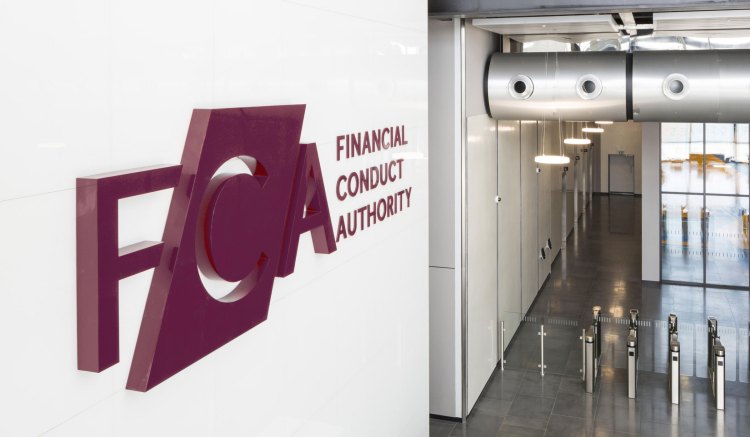
FINRA Rule 2111
In the FINRA rulebook, rule 2111 stands out as one of the strongest examples of the regulator's ethos: the customer must come first.
Written by a human
As such, broker-dealers who recommend one product over another in order to receive larger commissions, to keep their jobs, or because they feel pressured by their firm are all in violation of this rule.
Investment and transaction recommendations should be carefully considered and specific to the exact customer you’re working with. Learn more about how to apply FINRA rule 2111 to your practice, and avoid the naming and shaming of the regulators.
Background on FINRA 2111
FINRA 2111 is also known as the Suitability Rule. It exists to detail the requirements of member firms and their associated persons when evaluating whether a transaction is suitable for an investor.
The rule exists in order to safeguard retail investors by making sure that their financial advisors are maintaining high standards of due diligence. Since this legislation puts the responsibility onto the FINRA members, it was introduced to promote ethical conduct and rejects the idea of ‘profit above all else’.
Scope of FINRA 2111
The rule is vast, but there are three key areas to focus on:
- Customer investment profile
- Triangle of suitability
- Overlap with Reg BI
Customer Investment Profile
The first requirement is for the member firm and associated persons to gather and analyse the investors demographics. The aim of this part of the regulation is to ensure that recommendations are based on research and due diligence.
Here are some examples of the types of information to collect:
- Financial situation, including needs and goals
- Investment experience and time horizon
- Liquidity requirements and risk tolerance
The purpose of this step is for advisors to get to know their investors on a deeper level, and ensure that they meet the full requirements of due diligence.
Triangle of Suitability
There are three types of suitability that FINRA members firms and their associated members must meet before making a financial recommendation:
- Reasonable basis
- Customer specific
- Quantitative suitability
Reasonable basis
The recommendation must first be deemed suitable for at least some proportion of investors, through looking at the potential risks and rewards of the opportunity. This requires thorough research and due diligence on the investment opportunity itself.
Customer specific
The recommendation must then be deemed suitable for the specific investor that it is being considered for. This involves the financial advisor matching the customer’s profile to the investment type, and ensuring it aligns with the specific financial situation, needs and goals of the investor.
Quantitative suitability
The recommendation for an investment must not be excessive in its nature in comparison to the investor’s affordability, risk tolerance and general profile. This requires reasonable diligence and a focus on the economic factors.
Overlap with Regulation Best Interest
While FINRA 2111 was initially introduced in 2010 with a number of other Finra rules, it was brought back into focus in June 2020 when Regulation Best Interest was introduced. This regulation further details the way that broker-dealers must complete their due diligence before making a financial recommendation.
This introduced added suitability obligation factors when assessing potential investments:
- Conflict-of-interest obligation: identify and mitigate conflicts
- Care obligation: assess within context to take full care over investment decisions
- Disclosure obligation: fully and fairly inform investors where conflicts of interest are not eliminated
- Compliance obligation: devise a compliance plan and train staff to follow it
Key violations: don’t make the same mistakes
There have been many records of FINRA 2111 violations over the years, resulting in a regulatory notice, and in some cases, FINRA arbitration.
Case Study: SW Financial
SW Financial were investigated by FINRA for multiple failings, including the violation of rule 2111.
Between January 2018 and December 2021, the firm was found to have failed in confirming a reasonable basis for suitability, the first prong of the suitability triangle. That’s because a registered representative from SW Financial didn’t conduct the proper due diligence on investment opportunities with relevance to customer information before they made recommendations. It meant that the firm couldn’t confirm that these investments were in the best interests of at least some of the firm’s customers.
Alongside this, SW Financial were found to have failed to confirm that investments were not excessive in relation to the customer’s profile.
These violations, in combination with Reg BI violations, led to fines of approximately $60,000 for the firm, alongside the suspension of senior personnel and a censure.
Case Study: CIM Securities
CIM Securities was investigated and fined $35,000 in January 2022 after violations of FINRA Rule 2111.
The firm was found to have proceeded with high-risk investments for at least three customers without performing the required due diligence research required in the customer investment profile section of the rule. In particular, associated persons from the firm did not gather risk tolerance or liquidity needs information.
At least two of these customers actually provided extra information which suggested that the investment opportunity was not suitable for their specific profile, yet the firm continued. FINRA also found that the firm failed to establish an adequate supervisory system for compliance.
Compliance without compromise
FINRA’s 2111 rule requires firms to meet strict suitability requirements, and prove that their supervisory system for compliance is adequate. Integrate your research and record-keeping process with Global Relay’s platform to benefit from AI-assisted data classification, full escalation workflows and audit reports.
Get a demo to see how Global Relay can transform your compliance.


